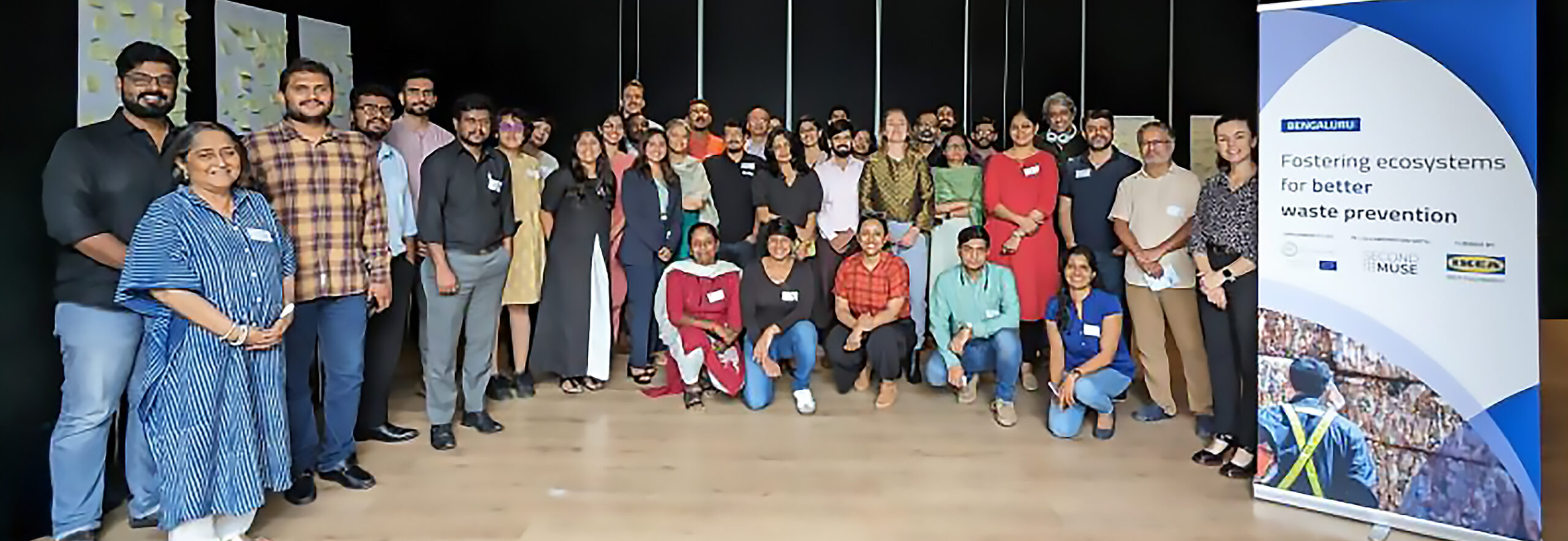Share this article
Circularity Innovation Ecosystem Baseline Report

Bengaluru, a city undergoing rapid growth and urbanisation, is facing a critical waste management crisis affecting both our environment and society. The surge in population and shifting consumption habits have led to an unprecedented increase in waste generation, putting immense pressure on the already insufficient waste management infrastructure. Inadequate policies and the struggle of informal workers exacerbate this situation.
Yunus Environment Hub conducted the Circular Innovation Ecosystem baseline report on behalf of EIT Climate-KIC to map out the circularity innovation ecosystem in Bengaluru with a particular focus on solid waste management.
The report provides an in-depth analysis of the circular waste management system, and an extensive stakeholder mapping to understand the interconnections and opportunities for Bengaluru. The research dives into how the waste management system works for inorganic and organic waste streams, startups dedicated to combating waste solutions, and incubators supporting their growth and scale. It outlines relevant policies, the role of academia, provides insights on new technologies and innovations and highlights the role of multinationals to combat waste, including investments into circularity. The report also provides an analysis of the social, economic, and financial circumstances surrounding informal waste workers.
The final baseline report provides detailed recommendations and justification on where Climate-KIC could focus their investment to build a Circularity Innovation Ecosystem to support the acceleration of circular startups and businesses related to waste management, and the challenges that should be considered.
If you need support in designing a circularity innovation program, please contact us through info@yunuseh.com.